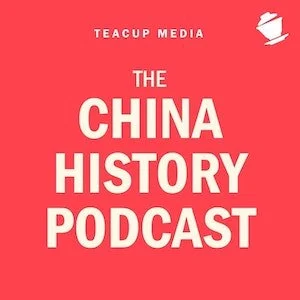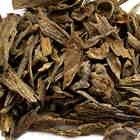Ep. 283 | The Taiping Rebellion (Part 4)
After the Convention of Beijing was signed in 1860, the foreign pers weren't so sure about the Taiping's anymore. For the sake of preserving their hard-won gains in the Second Opium War, they hopped down off that fence and sided with the Qing forces. In this episode, we hear about Frederick Townshend Ward and the Ever Victorious Army. 1862 was the pivotal year for the allies lined up against the Taiping rebels. Victory was still a couple years away but it was well within sight at least.
As always, the terms from the episode are listed below, or available to download!
Listen On Your Favorite Podcast Player
Terms in Episode
| Pinyin/Term | Chinese | English/Meaning |
|---|---|---|
| Tiānjīng | 天京 | The city of Nanjing. It was renamed Tianjing after the Taiping Rebels took the city of Nanjing |
| Hóng Xiùquán | 洪秀全 | 1814-1864, Chinese revolutionary and leader of the Taiping Rebellion. Claimed to be God's son and the younger brother of Jesus Christ |
| Hóng Rénfā | 洪仁发 | Hong Xiuquan's eldest brother |
| Hóng Réndá | 洪仁大 | Hong Xiuquan's second-eldest brother |
| Shí Dákāi | 石达开 | 1831-1863, The Wing King of the Taiping Heavenly Kingdom. One of the five key leaders of the Taiping's. More of him in Part 3 |
| Lǐ Xiùchéng | 李秀成 | 1823-1864, Taiping general who, along with Cheng Yucheng, played a front an center role during the final five years of the Rebellion |
| Chén Yùchéng | 陈玉成 | Taiping general, also known as The Four Eyed Dog, who lived 1837-1862. |
| Zēng Guófān | 曾国藩 | 1811-1872, Chinese statesman and military general of the late Qing dynasty. He is best known for raising and organizing the Xiang Army to aid the Qing military in suppressing the Taiping Rebellion and restoring the stability of the Qing Empire |
| Húnán (Xiāng) Army | 湘军 | Hunan Local militia founded by Zeng Guofan that went on to serve as a regional and later national fighting force. The Xiang Army was one of two armies known as the Hunan Army. Another Hunan Army, called the Xiang Army, was created by Zeng Guofan to fight in the Taiping Rebellion. Remnants of the Xiang Army which also fought in the war were then called the "Old Hunan Army" |
| Lǐ Hóngzhāng | 李鸿章 | 1823-1901, Chinese politician, general and diplomat of the late Qing dynasty. He quelled several major rebellions and served in important positions in the Qing imperial court, including the Viceroy of Zhili, Huguang and Liangguang. |
| Chǔ Army | 楚勇 | A standing regional army based in Hunan (Chu) organized by Zuo Zongtang (左宗棠). |
| Yǒngyíng | 勇营 | Literally translates to "brave camps". They were a type of regional army that emerged in the 19th century in the Qing dynasty army, which fought in most of China's wars after the Opium War and numerous rebellions |
| Guǎngxī | 广西 | Province in southwest China just west of Guangdong |
| Dorgon (Duō’ěrgǔn) | 多尔衮 | 1612-1650, Manchu Prince and regent during the founding years of the Qing Dynasty. He was one of the sons of Nurhaci and brother to Hong Taiji, all founders of the dynasty |
| Yè Míngchēn | 叶名琛 | 1807-1859, Chinese official remembered for his refusal to back down to Britain at the outset of the Second Opium War |
| Dàgū Forts | 大沽炮台 | Forts located near Tianjin built during the Ming between 1522 and 1527. Originally intended to protect the city from pirates, they later served as a major naval fort and was the site of a lot of action during the Second Opium War |
| Aìhún Tiáoyuē | 瑷珲条约 | The Treaty of Aigun where the Russian Empire helped themselves to a huge portion of Manchuria all the way to the Pacific Ocean |
| Hēilóngjiāng | 黑龙江 | Province in northeast China, part of Manchuria |
| Xiánfēng Emperor | 咸丰帝 | Emperor from 1850-1861. Had to deal with the Taiping Rebellion his entire reign |
| Tiānjìn | 天津 | Port city just to the southeast of Beijing |
| Tsim Sha Tsui | 尖沙咀 | District located at the tip of the Kowloon peninsula in the Hong Kong SAR |
| Féng Yúnshān | 冯云山 | 1821-1856, The Eastern King of the Taiping Heavenly Kingdom. He had a direct pipeline to the Lord God |
| Hóng Réngān | 洪仁玕 | 1822-1864, the Shield King, cousin of Hong Xiuquan, tried to institute a whole slew of reforms but it was too much too late. |
| Kāng Yǒuwéi | 康有为 | 1858-1927, Remembered as one of the great thinkers and reformers of the late Qing Dynasty. One of the leading members of the Hundred Days of Reform |
| Liáng Qǐchāo | 梁启超 | 1873-1928, great writers, activist, reformer, intellectual during the late Qing. Worked with Kang Youwei in the failed 1898 Reform Movement |
| Zuǒ Zōngtáng | 左宗棠 | 1812-1885, admired Chinese statesman and military great. His prowess on the battle field kept the Qing Dynasty in business for many more years |
| Lǜ Yíng Bīng | 绿营兵 | The Green Standard Army |
| Jiāngnán | 江南 | Region of China that contains Shanghai, Southern Jiangsu, Zhejiang, and southeast Anhui. Today it's the richest part of the PRC. Jiangnan literally means "south of the Yangzi River" |
| Sūzhōu | 苏州 | City in Jiangsu Province |
| Yīng Wáng | 英王 | The Heroic Prince |
| Zhèjiāng | 浙江 | Coastal province in China |
| Sōngjiāng | 松江 | Suburb of Shanghai to the west |
| Qīngpǔ | 青浦 | Suburb of Shanghai adjacent to Songjiang. Both places to subject to intense battle during the Taiping campaign to capture Shanghai |
| Pǔdōng | 浦东 | City on the other side of the Huangpu River from The Bund. Today it's the home to Shanghai's tallest buildings and the Financial District. The international airport is also located there |
| Empress Dowager Cíxǐ | 慈禧太后 | 1835-1908, Empress Dowager and regent who ran the Qing Dyansty for forty-seven years. |
| Prince Gōng | 恭亲王 | 1833-1898, leading statesman during the late Qing, also the right-hand man of the Empress Dowager. His father was the Daoguang Emperor |
| Tóngzhì | 同治帝 | Qing emperor who reigned 1861-1875. His mum was the Empress Dowager Cixi |
| Guāngxù | 光绪帝 | Qing emperor who reigned 1875-1908. His aunt was the Empress Dowager Cixi |
| Miáo | 苗族 | a group of linguistically-related peoples living in Southern China and Southeast Asia, which are recognized by the government of China as one of the 56 official ethnic groups. The Miao live primarily in southern China's mountains, in the provinces of Guizhou, Yunnan, Sichuan, Hubei, Hunan, Guangxi, Guangdong and Hainan |
| Huí | 回族 | The Hui People, adherents to Islam, there's about ten million of them in China today |
| Shǎnxī | 陕西 | Province in north China. Capital is Xian |
| Dungan Revolt | 同治回乱 | Also known as the Hui Minorities War, this one lasted 1862-1877 during the reign of Tongzhi. The uprising was put down by forces led by Zuo Zongtang |
| Hakka | 客家 | Hakka, a Han Chinese subgroup whose ancestral homes are chiefly in the Hakka-speaking provincial areas of Guangdong, Fujian, Jiangxi, Guangxi, Sichuan, Hunan, Zhejiang, Taiwan, Hainan and Guizhou |
| Punti | 本地人 | The local Canrtonese people who lived in that area for generations. They weren't fond of the Hakka's who migrated to their part of Guangdong |
Resources
Books
God’s Chinese Son: The Taiping Heavenly Kingdom of Hong Xiuquan by Jonathan Spence
The Search for Modern China, 2nd Edition by Jonathan Spence
A History of Chinese Civilization by Jacques Gernet
Fall of Imperial China by Frederick Wakeman
The World of a Tiny Insect: A Memoir of the Taiping Rebellion and Its Aftermath by Zhang Daye

















his all took place in the final moments of the Warlord Era, right after the Central Plains War. This act perpetrated by warlord Sun Dianying 孙殿英 epitomized the venality of these men.